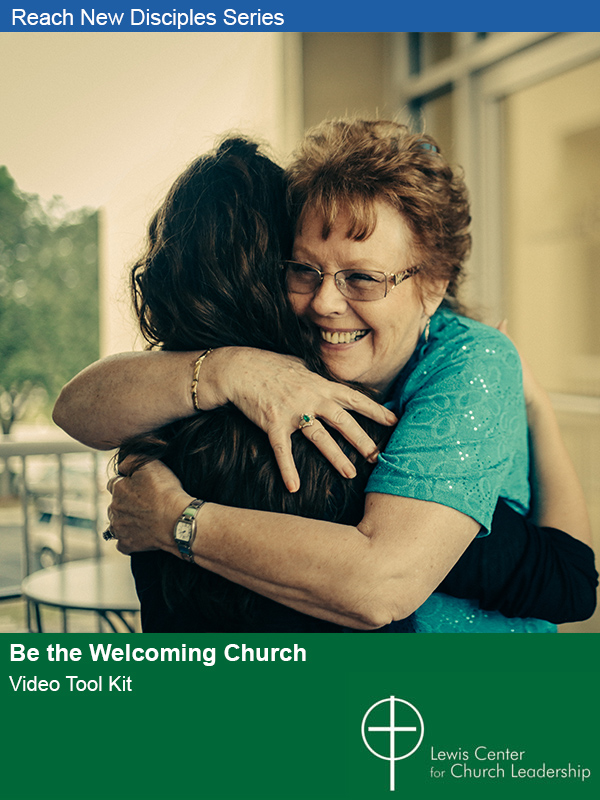Christian hospitality doesn’t begin at the church’s front door, writes Philip J. Brooks. It extends Christlike love into the surrounding community, builds relationships, and risks change for the sake of including someone new.
Hospitality is a word one hears often in church. Many congregations have a permanent hospitality committee or dedicated team to ensure guests on Sunday are welcomed warmly. But Christian hospitality cannot be reduced to a well-stocked coffee bar, professional-looking greeter nametags or welcome baskets for first-time visitors. All are ways a church can express a spirit of hospitality, but where does that spirit come from?
1. Hospitality is love
The spirit of hospitality does not come from concern for a congregation’s image nor does it guarantee the congregation will be popular or successful in the conventional sense. Hospitality grows from earnest witness and invitation to those outside the church’s walls. It means demonstrating Christlike love to the community around the church.
In “Radical Hospitality: The First Practice of Fruitful Congregations,” Bishop Robert Schnase describes hospitality as how a church expresses love for Christ and its neighbor through intentional acts of invitation and service. “Jesus’ example of hospitality demands an unceasingly invitational posture that we carry with us into our world of work and leisure and into our practice of neighborliness and community service. It involves seeing ourselves as sent out by Christ and going out of our way, even at the risk of a sense of awkwardness and inconvenience, to invite people into some aspect of the church’s ministry,” wrote Schnase.
While hospitality does happen inside a church space, it does not begin at the church’s front door. It starts in the hearts of congregants committed to consistently reaching new people for Christ and sharing God’s love with the world. Some of the best examples of Christian hospitality occur in the homes and personal spaces of the very people the church wishes to serve.
2. Hospitality is relational
Hospitality that begins with extending love and invitation to those outside the congregation will also reveal itself in the building of relationships. In his sermon “On Visiting the Sick,” John Wesley stressed the need for Christians not simply to donate to those in need but to visit and get to know them.
“One great reason why the rich, in general, have so little sympathy for the poor, is, because they so seldom visit them,” Wesley wrote. “Hence it is, that, according to the common observation, one part of the world does not know what the other suffers.”
As they get to know the people they serve personally, members will develop empathy and love for them. The congregation will be better able to address the needs of those it serves as it talks with the community directly. These relationships will turn good intentions into fruitful acts of mercy.
3. Hospitality is adaptable
Hospitality also requires an openness to influence and change from without. Many churches are happy to let anyone through the door but expect the church’s culture to remain unchanged. Welcoming people as they are also means allowing them to leave their mark on the congregation. A hospitable church must be open to change in its ministries and practices to make new disciples. This is where many congregations stop short when it comes to Christlike hospitality. Jesus was never afraid to challenge conventions and cultural norms to offer the gospel to all people, and he insisted his followers do the same.
This expression of hospitality might lead a church to offer services in unconventional places such as coffeehouses, bars, diners, or public parks. Jesus didn’t make the people come to see him in the synagogue but took his message to them in the streets and public spaces. Wesley did the same through his field preaching. One recent example is Hope United Methodist Church in Bedford, Ohio, which hosted a tailgate worship service before a Cleveland Browns game to reach out to football lovers.
Hospitality might also mean organizing small groups or Sunday School classes around specific concerns or life experiences, like addiction or special needs, as well as around age or life stages. The Woodlands United Methodist Church in Houston began welcoming families with special needs by offering a Sunday School for children with disabilities. Today the church offers a special needs family worship service four times a year and has special needs youth and adult confirmation classes.
Hospitality may include opening church facilities or spaces to outsiders in creative ways. University City United Methodist Church in Charlotte, North Carolina, offers hospitality through its kitchen. Every Wednesday the church hosts a free meal to the community and bakes bread weekly to give to visitors on Sunday morning. The congregation also opens the kitchen to outside groups for special events.
Hospitality will look different depending on the church and the community it serves, but true Christian hospitality always comes from a place of love for one’s neighbor grounded in the teachings of Christ. Hospitality is more than simply being a good host; it is opening the church and ministry entirely to those in need of God’s love.
While hospitality does happen inside a church space, it does not begin at the church’s front door. It starts in the hearts of congregants committed to consistently reaching new people for Christ and sharing God’s love with the world.
This article originally appeared under the title What is Hospitality? on ResourceUMC.org, a collaborative effort of the United Methodist general agencies managed by United Methodist Communications. Used by permission.
Related Resources
- Be The Welcoming Church Video Tool Kit
- Welcoming Newcomers to Your Congregation by Jessicah Krey Duckworth
- Beyond Hospitality to Inclusion by David R. Brubaker







